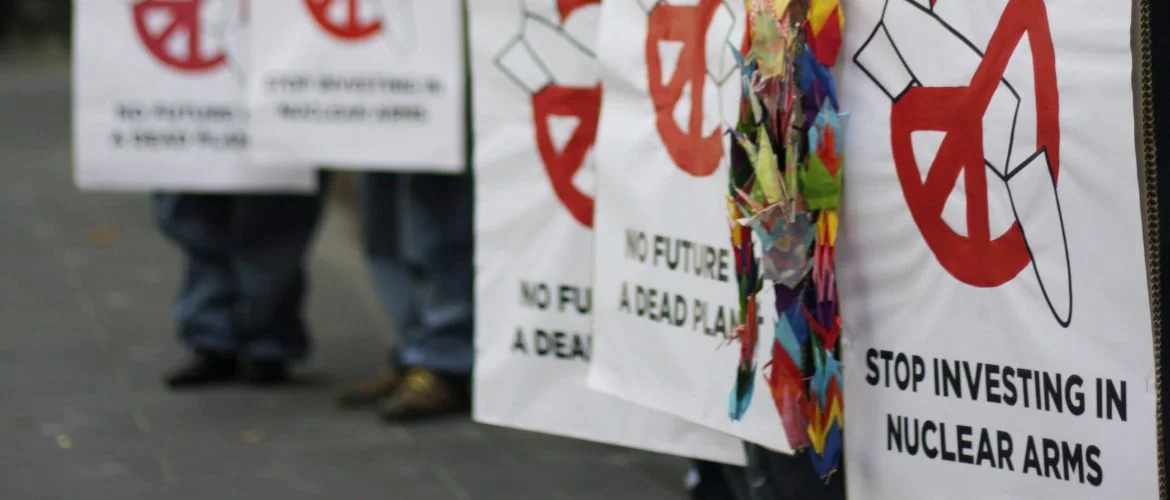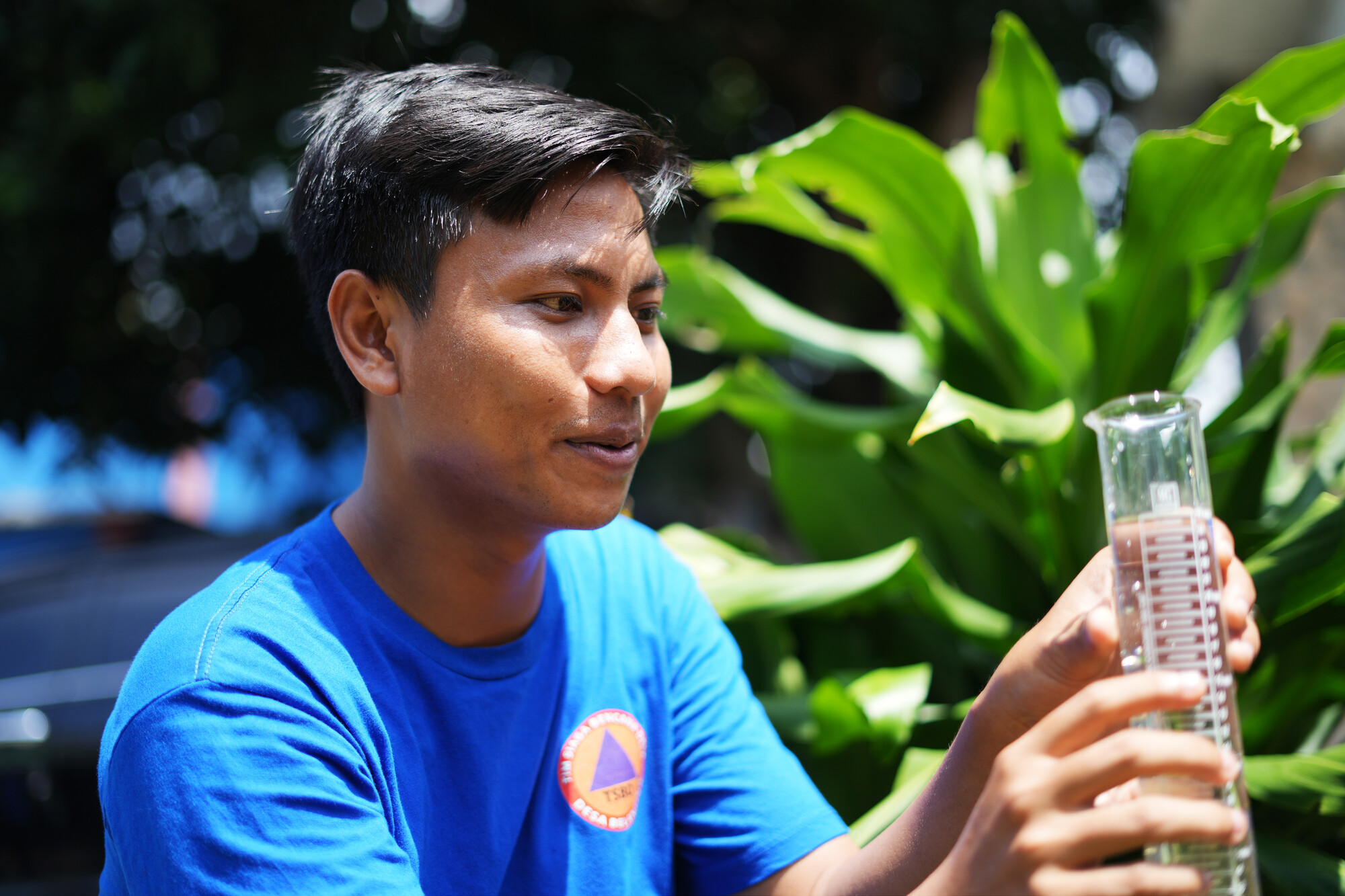By Daisy Gardener, Sustainable Food and Advocacy Lead, Oxfam Australia and ICAN board member
I was looking forward to a hot chocolate and an early night on Friday 6th October after a long week. I had just put my two sons to bed and put the kettle on to boil when my partner Clancy said “The Guardian Australia is reporting that the International Campaign to Abolish Nuclear (ICAN) weapons has just won the Nobel Peace Prize”.
“That’s nice” I replied, only half listening over the noise of the kettle. It took a long moment to sink in – the organisation that my father had co-founded ten years ago in Melbourne had just won the world’s most prestigious peace prize.
With a list of 300 organisations in the 2017 nominations, ICAN had not expected to win the award. Strict secrecy rules meant that the ICAN Executive Director in Geneva had only been phoned 10 minutes before the public announcement and half thinking it might be a prank, the news only reached us in Australia when the Nobel Peace Prize press conference was well underway.
I joined the ICAN Australia board in 2013, partly to spend more time with my father, Bill Williams. Bill had a jam-packed life working as GP in Torquay, writing books, gardening and working unpaid as the Chair of the ICAN Australia board. Joining the board meant I could contribute to this important campaign and spend extra time with my dad.

As I stood next to the boiling kettle that Friday night I felt both joy and tremendous sadness. After dedicating his life to peace work and founding ICAN, Bill passed away unexpectedly last year. This Nobel Peace Prize is an incredible legacy to his commitment and also a boost to this important campaign that aims to rid the world of the worst weapons of mass destruction.
ICAN has been campaigning to draw attention to the catastrophic humanitarian consequences of nuclear weapons and working to achieve a treaty-based prohibition of these weapons. Nuclear weapons are the most destructive and inhumane weapons ever created. We know from the survivors of Hiroshima and Nagasaki the horror of a nuclear blast as well as the multi-generational health impacts from survivors of nuclear testing in the Marshall Islands and South Australia.
In parliament today @AlboMP tabled an open letter signed by 90 Aus organisations, urging @TurnbullMalcolm to sign the #nuclearban treaty. pic.twitter.com/dMgvV3bj67
— ICAN Australia (@ican_australia) October 23, 2017
This week ninety Australian organisations, including Oxfam Australia, wrote an open letter to Prime Minister Malcolm Turnbull calling on the Australian Government to sign and ratify the Treaty on the Prohibition of Nuclear Weapons. Since the Treaty opened for signature on the 20th of September, 53 nations have signed on, but Australia has yet to sign. Global momentum is growing on this issue and the Nobel Peace Prize has helped to boost the public awareness of the campaign.
There is a lot more work to do, but I am proud that Oxfam Australia is an ICAN partner and I for one can clearly see a future without nuclear weapons. I know that Bill would agree.



